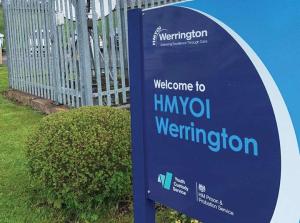As Children’s Commissioner for England, I have a statutory duty to ensure that the views of all children are listened to, and to pay specific regard to those with a social worker, those who are vulnerable and those living away from home, with their views reflected to policy makers, parliamentarians and those who make decisions about children. This includes by speaking and listening to refugee and unaccompanied asylum-seeker children (UASC), and ensuring they are heard and represented in policy design, delivery and implementation.
I regularly make visits to a variety of settings where refugee children and UASC are housed. In the case of refugees, the children usually have been granted leave to remain, whilst UASC are usually those who have just arrived here and may be waiting for a decision to be made about their application for asylum. I want to listen to children and represent their views, and to this end last week my office visited several places where these children live and met with key stakeholders working in the field.
First, my Help at Hand service met with Youth Led Commission on Separated Children to follow up on their campaign around Legal Guardianship and support for UASC as soon as they arrive in the UK. My office also visited one of the hotels where UASC children and young people are sent soon after their arrival at the Kent intake unit, which we also visited. Our Help at Hand service regularly assists UASC children and young people, and last year provided 50 UASC with access to advocacy support, support to access suitable accommodation, and advice around how to gain financial support when they have no access to public funds. We will continue to monitor sites such as the Kent Intake Unit to make sure that the children and young people in their care are respected and treated well.
Last week, my office also made a visit to a hotel in Luton housing refugee children and their families. The young people my office spoke with have been granted leave to remain, and have been living in the hotel since their arrival in the country last August. The young people described being “thankful” to the UK for giving them shelter, and had high aspirations for the future. Many have completed their GCSEs, and are looking to extend their education further in the UK. This visit will form part of a wider programme of work, and we will visit again in the near future.
Help at Hand will also continue to offer support, whether in the form of free, independent advice, assistance and representation, or by signposting and helping young people access specialist support services. If you need to speak to Help at Hand you can access support by calling 0800 528 0731 or emailing [email protected].






